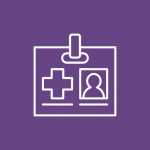What are practice conditions?
Under the Health Professions Act (HPA), the College of Physicians & Surgeons of Alberta (CPSA) may place conditions on a physician’s practice permit as a protective measure, to ensure the delivery of safe medical care to patients.
When are practice conditions applied?
An independent medical examiner (IME) may recommend practice conditions for a physician managing a health condition, to help ensure the condition does not negatively impact patient care.
In addition, practice conditions may be imposed by CPSA’s:
- Registration team
- Professional Conduct team
- Other programs within Continuing Competence, depending on the circumstances
Practice conditions monitoring
Monitoring is coordinated by CPSA’s Health & Practice Conditions Monitoring (HPCM) team and is carried out in a timely and comprehensive manner, using various verification methods.
Examples of practice conditions
Practice conditions are tailored to the individual situation and may include:
- A requirement to have a chaperone present during patient encounters
- Restrictions on scope of practice (e.g., limited to family medicine only)
- Prescribing limitations
- Restrictions on the types of patients seen (e.g., adult patients only)
- Limits on the number of hours worked
- Practice setting requirements (e.g., must work in a group practice)
What is a chaperone?
A chaperone is a trained individual who is present during medical examinations or procedures to observe the interaction between a physician and a patient. The presence of a chaperone helps protect and support both parties—enhancing trust, comfort and transparency in the clinical setting.
While chaperones may be required as a practice condition in certain cases, CPSA encourages all physicians to offer trained chaperones as part of good medical practice, particularly during sensitive examinations.
Their role contributes to safe, respectful, and professional patient care.
When a chaperone condition is placed on a practice permit, anyone performing chaperone duties must be approved by CPSA.
Chaperone training
Offered in partnership with MacEwan University
CPSA and MacEwan University have partnered to offer medical chaperone training for physician office staff. This interactive, self-paced online workshop uses scenario-based learning to help participants:
- Understand appropriate clinical procedures
- Recognize and respond to improper behaviour in patient care settings
- Apply best practices in real-world clinical environments
The course is self-directed with no instructor involvement, allowing flexibility in scheduling. It takes approximately four hours to complete and participants have one month from enrollment to finish the course.
This training is ideal for staff who support patient care and want to ensure safe, respectful and professional interactions in clinical settings.
Offered through PBI Education
In partnership with the University of California, Irvine, School of Medicine, PBI Education offers several accredited courses for clinicians, including a comprehensive Medical Chaperone Training Program.
This self-paced, online course integrates:
- Targeted readings
- Scenario-based learning activities
- Knowledge checks
The program is designed to ensure that chaperones develop the skills necessary to serve as effective, professional, and valued members of the healthcare team.
FAQs about chaperones
To see more FAQs for Physicians, click on All FAQs and filter by "Physicians"
All FAQsWhat is a chaperone?
Chaperones are independent, appropriately trained individuals who work with physicians to observe examinations and/or procedures. Their presence helps support and protect both the patient and the physician.
What are the roles and responsibilities of a chaperone?
- Developing an office policy regarding chaperones
- Ensure staff and patients understand and have access to it
- Proper implementation of policy
- Comply with CPSA’s Standards of Practice
- Communicate clearly and in plain language
- Explain why the sensitive exam is necessary, obtain informed consent, explain as you go and end by asking if there are any questions
Questions about practice conditions? Contact HPCM.
Confidential inquiries: 780-969-5021
Confidential fax: 780-441-1616
Confidential email: PhysicianHealth@cpsa.ab.ca
Toll-free: 1-800-320-8624 (in Canada)























